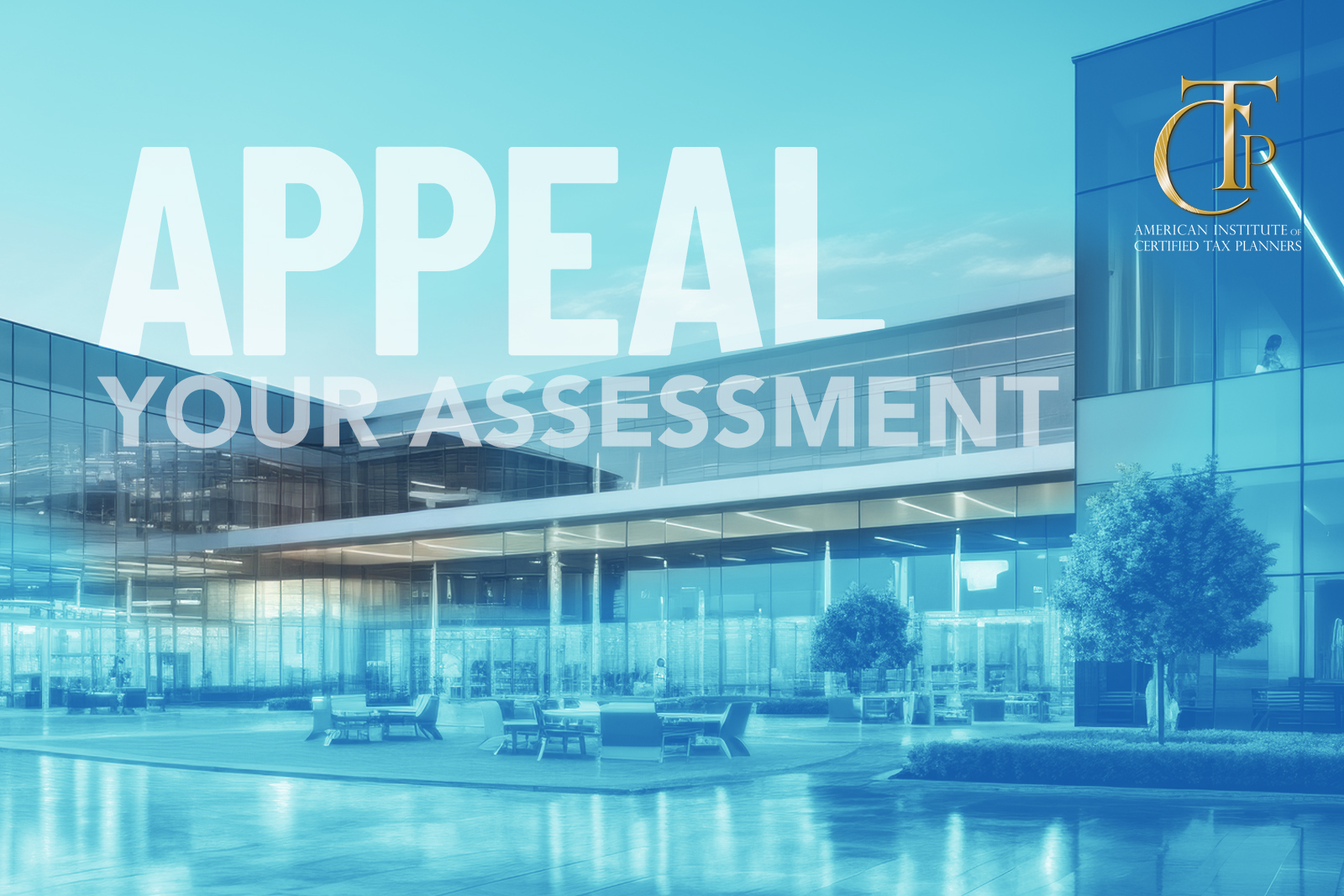Want information on residential property assessment appeals instead? Read here.
Purchasing an income-producing property may seem like a great financial investment—until you get your property tax bill. How can you offset a substantial tax bill as you simultaneously work to make your property as lucrative as possible? One way is to simply appeal your property tax assessment.
First, you’ll need a basic understanding of how property taxes work. As a commercial property owner, the tax you owe is largely based on the value of your property. Local governments employ assessors whose job it is to set a value for each property in their jurisdiction. These values are updated on a regular basis—whether that’s yearly or less frequently, depending on where you live. How does an assessor determine the value of a property? This is a surprisingly complicated question, since a wide variety of ever-shifting factors can influence a property’s worth—which can actually work in your favor. If you can identify key details that your local assessor overlooked when valuing your property, you can make an argument for a lower valuation—and therefore a lower tax bill.
Today’s blog will focus on filing an appeal for a commercial property. This includes non-residential properties, such as warehouses, office buildings, medical offices, laboratory space, manufacturing plants, and similar properties that might be rented out to businesses. The rules discussed here may not apply to most residential properties (see our series on residential property taxes here), but one exception is if you own an apartment complex with 5 or more units. From a tax perspective, that will generally be considered a commercial property as well. By understanding the valuation process in your state or locality, you are on your way to make the case for tax savings.
Property Valuation is Subjective—Which Can Be a Good Thing
Any property is only worth what someone is willing to pay for it at any given time, which makes the appraisal process an extremely subjective one. So many factors can impact the value of a commercial property, such as:
- Age
- Physical Condition
- Functional Obsolescence
- External Obsolescence
- Capitalization Rates
- Rental Fees
- General Market Conditions
Some of these factors may be more obvious than others. If a building is older and more worn down than similar properties in the same area, that property is not likely to sell for as much. You will also want to look at what is happening in the surrounding area. Say your neighborhood is becoming less desirable because it is in a former business district that is not getting much foot traffic these days. This has become a common story since remote work has taken over in the aftermath of the COVID-19 pandemic. The same thing could happen if a major retailer or large grocery store shuts down. If the property you own is in a shopping center, your renters may have relied on that bigger store to draw in business (this is known as an “anchor tenant”). Losing that anchor tenant can dramatically reduce business income, providing a sound argument for a lower property valuation.
As you put together your appeal, you will also want to become familiar with the concepts of functional and external obsolescence. Functional obsolescence occurs when your property has an outdated or niche feature that reduces the usefulness or appeal of the property. This can be a consequence of changing times and regulations. For instance, current ADA guidelines require most businesses to make their property broadly accessible. If a building has stairs leading up to the entrance but no space to install a ramp, this can impact the value of a property. A business would have to invest a significant amount of money to fix this problem, so they may be less inclined to move into that building. An example of a niche feature might be a Japanese restaurant with a sunken-in seating area that fills a large part of the room. This setup is very specific to that type of restaurant, and another business may have difficulty making use of that space. This can provide an argument for functional obsolescence.
External obsolescence has more to do with social, environmental, or economic forces—factors coming from outside the property itself. Say your property currently houses a restaurant, but in the last year, they built a new garbage dump nearby. The bad odors may drive down business in that area, making it less appealing to tenants. This is an example of external obsolescence—the problem is caused by something that business cannot resolve by fixing the property.
Lastly, you’ll want to understand the general market conditions in your area. What are occupancy rates like? Is your area experiencing a housing shortage? Are rental rates especially high? Any factors like these can impact the valuation of your property.
How to Challenge Your Assessment
Once you have determined that you have enough data to make a case and you want to file an appeal, the first thing to look at is timing. You need to make an appeal before the property tax bills come out if you hope to lower your taxes for that year. Once you receive your bill, you cannot typically adjust the valuation in retrospect—you’ll have to work on applying savings to the upcoming tax year. You’ll also need to familiarize yourself with the assessment period, since that will vary from state to state. To prepare the appeal, you will also want to consider the valuation method used for your property and the comparable properties you are citing, which is the topic of our next blog [link here].
The process generally starts with an application, which can often be found online. If the Assessment Appeals Board agrees with your argument, when your property tax bill comes out, you’ll see a lower number because the valuation is now lower. If the board disagrees, they may require you to present at a hearing. Don’t let this deter you! The worst that can happen is they deny your appeal, and your property valuation stays at the same number. If your appeal is denied but you still believe that you have a solid argument for a substantially lower number, you can enlist the help of an attorney or professional appraiser.
Summary
Property valuation is a highly subjective process that opens an opportunity for the savvy taxpayer to challenge their tax assessment. Start by familiarizing yourself with the factors that can impact valuations. This will help you to notice opportunities to argue for a lower number. With a little research and time investment, you can prepare an appeal that could significantly lower your tax bill. If the task seems daunting or your free time is far too limited to tackle this on your own, consider enlisting the help of a professional. Reach out to a Certified Tax Planner today to discuss your options for lowering your property taxes.





